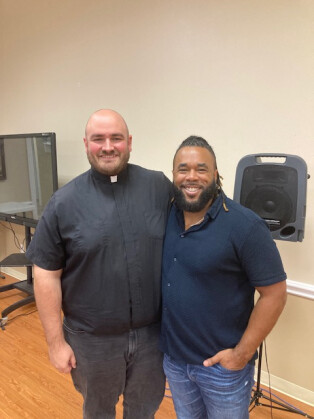We Are Threaded

One of the enduring challenges of the Church is a type of segregation. While not an enforced segregation in the legal sense, the Church still faces the dilemma that Dr. Martin Luther King Jr. recognized in his day: people of different races and cultures still worship the living God separate from one another. Christians may not have a theological problem with the idea of diversity, but we often practice our faith in such a way that communicates our preferences for homogeneity. Moreover, the practices and theological discourse within cultural and racial groups that are not our own can easily be foreign to us to the point where we don’t even see a need for diversity. They have their thing, we have ours. That’s good enough for me.
The Church is in a precarious spot when it doesn’t work towards racial and cultural diversity, though, because the world is diversifying around us at unprecedented rates. The local church that holds out on working towards diversity may quickly find herself looking nothing like the community that she is in the midst of. In this case, unless diligent work is done, the local church can lose its voice in its community and find itself being an unknown entity that speaks the Gospel past its neighbors. We are here left with two options: learn to engage and work within or hold out as a commuter parish.
Now, as a caveat, a commuter parish is not an inherently bad thing. The society within which we find ourselves makes commuting an assumed reality behind nearly everything we choose to do. Yet, the commuter parish runs the risk of stagnation and, as mentioned above, it can leave those in its immediate vicinity unreached. The Church is at its best when it stands as a beacon of hope, faith, and love in its geographic area; meeting the needs of its neighbors and inviting them in to worship God with us. This requires effort, a willingness to learn from a diverse range of people, and the ability to adapt to an emerging new world.
The Gospel lived in and through the Church by the power of the Holy Spirit is the one hope for humans to truly achieve a lasting racial reconciliation and cultural diversity. This is an important facet of the Gospel that we must grow into as our world continues to diversify and shrink in size. That is why I am grateful for the work of organizations like We Are Threaded, which the clergy of this diocese were given the opportunity to learn from this year. We Are Threaded is an organization that exists to address racial reconciliation with the Gospel and to help individuals and churches gain a greater awareness of their cultural intelligence. They do not exist to deny that cultural differences must be overcome by the Gospel, but to teach how different cultural/racial expressions of the Gospel are a celebration of God’s creative work and thus how to engage.
I found the discussion surrounding the CQ reports to be the most helpful for me. These reports have their faults, as people interpret questions and answers differently, but the CQ report provides a starting point for reflecting on what one does and does not know about engagement with others. It also shows your results against the backdrop of other cultural expressions, so you can get an idea of congruencies and potential disconnects with others. This, to my mind, has given me a more solid understanding of myself in the context of the wider world, but also given me a curiosity about how to better relate to other people.
We Are Threaded seeks to live into and teach others to follow St. Paul’s ministry expressed in 1 Corinthians 9:19-23. Here St. Paul examines that his ministry has become one of service to all people, meeting those people within their own racial and cultural contexts. As he says, “And unto the Jews I became as a Jew, that I might gain the Jews; to them that are under the law, as under the law, that I might gain them that are under the law; To them that are without law, as without law, (being not without law to God, but under the law to Christ,) that I might gain them that are without law. To the weak became I as weak, that I might gain the weak: I am made all things to all men, that I might by all means save some.” May we, like those who work within We Are Threaded, strive to know and serve our neighbors in context.

